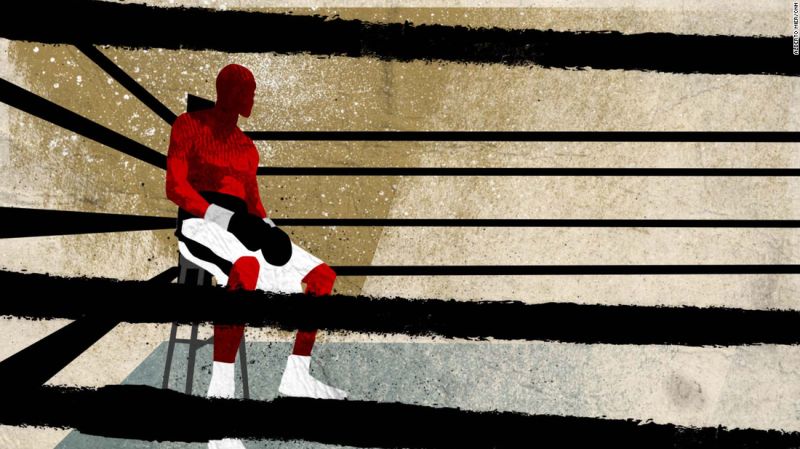YouTubers, doping and greed: It’s been a tough year for boxing | CNN
CNN
—
Simiso Buthelezi, Miracle Amaeze and Luis Quiñones are some of the talented boxers who have died this year as they pursued their sporting careers and chased dreams of world titles.
It’s an accepted risk of the profession. A database first compiled by anti-boxing activist Manuel Velazquez and updated in the Electronic Journal of Martial Arts and Sciences estimated 1,604 boxers died as a direct result of injuries sustained in the ring between 1890 and 2011 – an average of 13 deaths a year.
That’s a shocking statistic for a professional sport, but perhaps not altogether that surprising. As Stephanie Alessi-LaRosa, director of Hartford Healthcare’s sports neurology program, points out, it’s a boxer’s objective in a fight “to neurologically impair the opponent.”
The NFL and soccer are two notable sports grappling with the implications of concussion, but boxing even more so.
The acute concussions suffered by fighters when they are hit on the head are explained by Alessi-LaRosa as a “metabolic crisis” where a “functional disturbance of the brain” takes place.
The consequences of continuous hits to the head can be catastrophic.
Earlier this year, South African lightweight boxer Buthelezi appeared to turn away from his opponent and fight in the direction of an empty corner of the ring in the middle of a fight.
The referee stopped the fight immediately before Buthelezi was rushed to hospital. The South African boxer died days later.
Boxing has taken many strides to make the sport safer, such as reducing the total number of rounds and the introduction of sports neurologists, according to Alessi-LaRosa.
However, she also thinks more needs to be done, notably educating fighters and parents about the neurological consequences of being a boxer.
“I think if we can mandate – like how the NFL has – these neurotrauma consultants, or, if we can mandate somehow having a neurologist at every boxing – professional boxing at least – event, I think that would be a huge step,” says Alessi-LaRosa.
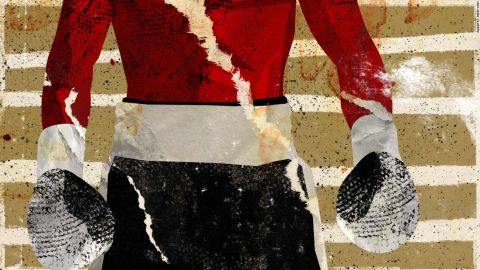
The health concerns stretch all the way to the top of boxing.
Deontay Wilder is known as one of boxing’s hardest punchers and he’s lost just twice in his career.
However, even Wilder was reduced to tears as he reflected on the dangers of his chosen profession earlier this year, referencing what happened to Prichard Colón when he fought Terrel Williams in 2015. Subsequently Colon was in a coma for 221 days having suffered brain bleeding.
In a complaint filed in 2017 in the Superior Court of the District of Columbia by Colón’s parents seeking more than $50 million from the ringside doctor and promoters connected to the fight, it said Colón had been left in a “persistent vegetative state requiring full time care.”
“You all don’t f**king understand what we go through, man,” an emotional Wilder said to the media after his first-round knockout of Robert Helenius in October.
As well as the deaths in boxing this year, the sport’s reputation has taken a battering over the handling of the highly-anticipated Chris Eubank Jr. and Conor Benn fight in October.
The bout was called off after Benn tested positive for clomiphene, a fertility drug used by women who struggle to ovulate.
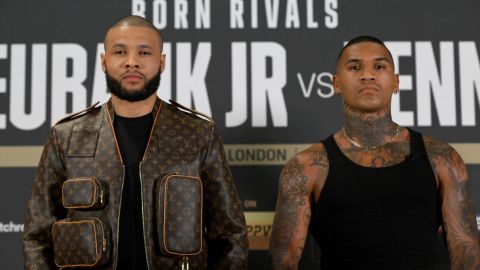
According to the U.S. Anti-Doping Agency (USADA), clomiphene in men can potentially boost testosterone levels “by interfering with the negative feedback loop of the hypothalamic-pituitary-gonadal axis.” The drug is also included on the World Anti-Doping Agency’s prohibited list under anti-estrogenic substances.
Previously, UFC stars Brock Lesnar and Jon Jones have both been suspended for a year each after testing positive for clomiphene.
Benn’s alleged rules violation emerged after a test done by the Voluntary Anti-Doping Association (VADA) which is a third-party testing agency used by the fighters to ensure a clean fight.
The British Boxing Board of Control (BBBofC) – the governing body for professional boxing in Great Britain – initially “prohibited” the fight after Benn’s positive test was revealed, saying it was “not in the interests of boxing.”
However, the bout’s promoter, Matchroom, and that organization’s boss, Eddie Hearn, were keen for the bout to go ahead.
Hearn told the BBC at the time: “As we stand right now, the British Boxing Board of Control is not sanctioning the fight. That does not mean the fight is off, but there is a process we have to go through.
“Conor Benn is not suspended, he is free and clear to fight. There’s lots going on with the lawyers.”
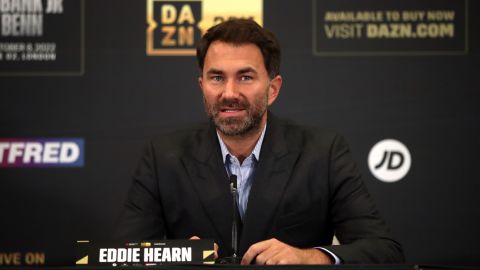
Amid mounting public pressure and safety concerns, the fight was ultimately canceled.
The decision to overlook potential safety concerns and stage a bout including a fighter who had tested positive for a banned substance prompted criticism that boxing prioritizes the fight’s money-making opportunities rather than the boxers’ safety.
CNN has reached out to Hearn and Matchroom to offer the opportunity to comment.
Weeks later, the BBBofC claimed that Benn voluntarily relinquished his licence with the governing body just before allegations of misconduct against the 26-year-old were upheld.
Benn has consistently denied doping, also accusing the BBBofC of conducting an “unfair and biased procedure.” He also disputes that the relinquished his license, saying rather that he’d allowed it to lapse since it was about to expire.
“(Benn) strongly refutes the allegation of misconduct (which for the avoidance of doubt is not in relation to the Vada issue) and firmly believes that an independent tribunal will reach a wholly different conclusion,” a statement said on Benn’s Twitter.
“At the appropriate time Conor will speak out on this and on the doping allegation, to the extent that he can whilst legal proceedings are ongoing. In the meantime he reiterates, in no uncertain terms, that he is a clean athlete.”
CNN has reached out to the BBBofC, Benn and Eubank Jr. for comment.
In a statement, UK Anti-Doping (UKAD) said it was investigating the incident, saying it “acts on all reports of doping.”
“UKAD takes all matters of suspected doping activity very seriously. We act on all reports of doping and encourage anyone with information on suspected doping activity to come forward and share that with us in confidence via our Protect Your Sport initiative,” UKAD chief executive, Jane Rumble, said.
“UKAD will not comment publicly on the specific facts of any case that may or may not be ongoing. We do this to respect and ensure the confidentiality of information as required by the World Anti-Doping Code and other applicable laws and regulations.
“Athletes know their rights and responsibilities when it comes to anti-doping and we will continue to work tirelessly to remove anyone from sport that breaks the rules.”
UKAD said it “can’t offer a comment on any ongoing investigations” when approached by CNN for an update.
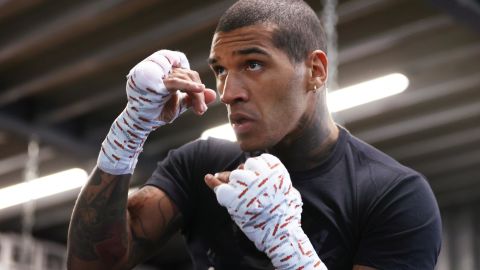
Amid deaths and failed drug tests, boxing is also facing new disruption from the rise of YouTubers – in particular Jake Paul, who is 6-0 in professional fights and has transitioned almost seamlessly from internet content creator to pro fighter.
Who needs hardened professionals when you have fighters like Paul, who can also generate plenty of noise and social media buzz – as well as money.
Forbes estimated earlier this year that Paul earned a combined $40 million before taxes from his three boxing victories in 2021.
In November, Paul clashed with Tommy Fury’s father, John, in Dubai after the latter boxer’s victory over Daniel Bocianski in a scene which has been branded as “ridiculous” by boxing promotor Frank Warren.
Paul and Tommy Fury have been scheduled to fight twice, with the latter withdrawing both times. In the bout with Bocianski – which came on the undercard of Floyd Mayweather Jr.’s exhibition fight against UK YouTuber Deji – Paul could be heard goading Fury and criticizing his abilities.
After the fight, when Paul approached the ring, John Fury ripped his shirt off before unleashing a barrage of abuse aimed at the US YouTuber-turned-boxer.
The whole evening – between the ring-side incident and the nature of Mayweather’s fight with Deji – has led to criticism of YouTubers’ involvement in the sport.
Paul said in a tweet that Mayweather was “ruining the sport of boxing.” In response, Mayweather said his “philosophy” was “currency over legacy.”
Former professional boxer and writer Ed Latimore rejects the notion that boxing is facing an existential crisis.
“I think boxing is experiencing the exact opposite of a state of decline,” Latimore told CNN, citing recent research which suggests boxing is now amongst the top four sports in the US.
“If you look at what Jake Paul has done with his audience, he’s brought a lot of people [fans] … Now with streaming, there is DAZN and Top Rank and PBC [Premier Boxing Champions, a televised boxing series]. I think it’s a good time in boxing, certainly in the next 10 to 20 years for sure.”
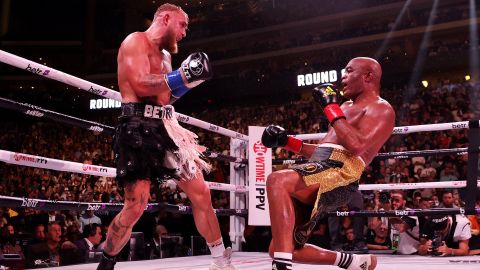
Ever since modern boxing’s growth over the last half century, fans have been entertained by superstars like Muhammad Ali, Mike Tyson and Mayweather.
That trio of fighters grabbed the attention of the world, notably a couple of Ali’s fights – the 1974 “Rumble in the Jungle” and the 1975 “Thrilla in Manila” – while Mayweather Jr.’s bout against Manny Pacquiao in 2015 was billed as “Fight of the Century.”
In the 1990s, two clashes – one at super middleweight and one at middleweight – fights between Nigel Benn and Chris Eubank Sr. also gripped boxing fans. Eubank and Benn are the fathers of the two fighters whose fight was canceled in October.
But in recent years, it seems that organizers have struggled to stage the title fights for which boxing fans have clamored.
In part, this is down to the convoluted negotiations between organizers, promoters and broadcasters. And with four boxing organizations, each with their own titles and champions, that only complicates matters further.
As such, a fighter can be a champion in multiple organizations and not even ranked in others.
Meanwhile, the unwillingness of some champion boxers – either undefeated or on long winning runs – to potentially lose their marketability by suffering a defeat has become another key stumbling block.
“It’s not like league sports where the brand is the league. In combat, the brand is the fighter. So when that fighter takes a loss, that cash cow falls off,” explained Latimore.
Latimore points to the 2015 fight between Mayweather and Manny Pacquiao which, he says, should have happened five years earlier.
By the time the two stepped into the ring together, Mayweather was able to command a large slice of the purse – which totaled an eye-watering $300 million – because he had been able to maintain his status as an undefeated fighter; Pacquiao had lost twice in 2012 after a 15-win steak.
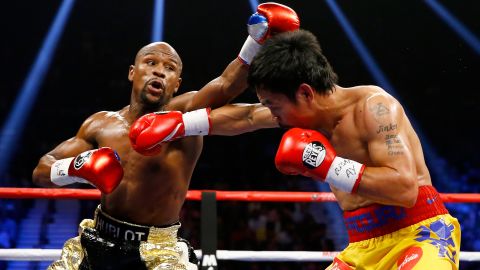
Four years ago, Wilder faced Tyson Fury in their first of what would be a trilogy of fights. Fury was coming off a three-year absence from the ring, while Wilder was the defending champion.
According to the California State Athletic Commission, Wilder earned a base purse of $4 million, while Fury earned $3 million. That was arguably because Wilder was the main draw, with Fury the challenger and less marketable.
Devin Haney, the superstar US lightweight fighter, chose to leave his promoters to allow him to challenge George Kambosos Jr. for his WBA, IBF and WBO lightweight world titles and unify the division.
It was a decision that paid off for Haney, as he beat Kambosos Jr. twice in Australia, winning by unanimous decisions both times and outclassing him twice.
The fight boxing fans are eagerly anticipating at the moment is the welterweight clash between US stars Terrance Crawford and Errol Spence, due to take place in February 2023.
It won’t be happening any time soon, according to Latimore.
“Or if it happens, it’s going to happen after one of them loses and somebody has significant leverage … it comes down to a business decision,’” said Latimore.
“And I want to say this to be very clear: I don’t think the fighters think this way. I really genuinely believe that Spence and Crawford are like: ‘Let’s go, bang.’
“But there’s the contract and business end of it and the business end of it, very often at this level, when there’s this much money involved and this much prestige involved … the business end of it gets in the way.”
US star Ryan Garcia recently took to social media to vent his annoyance that a potential fight with Gervonta Davis was taking so long to organize. In November, Garcia and Davis announced their catchweight fight will take place in April, 2023 in Las Vegas.
One possible solution could be a UFC-style system – with a president, like Dana White, overseeing and arranging in-demand fights.
“I think that would fix a lot of stuff,” admits Latimore, before quickly adding, “but then you remove all the ways you can make money … No one gives up power voluntarily. I do know that moving closer to any type of regulation is better for the fans.”
White himself has distanced himself from any involvement in boxing, calling it a “broken business.”
“Every time I try to think about doing something with boxing, I go: ‘Why would I want to do this to myself?’” he said on Blockasset’s BLOCK Party.
“Why would I even want to dive into this nightmare? That’s why I haven’t really done anything. It’s a broken business that is an absolute nightmare to try to fix.”
For all the latest Sports News Click Here

